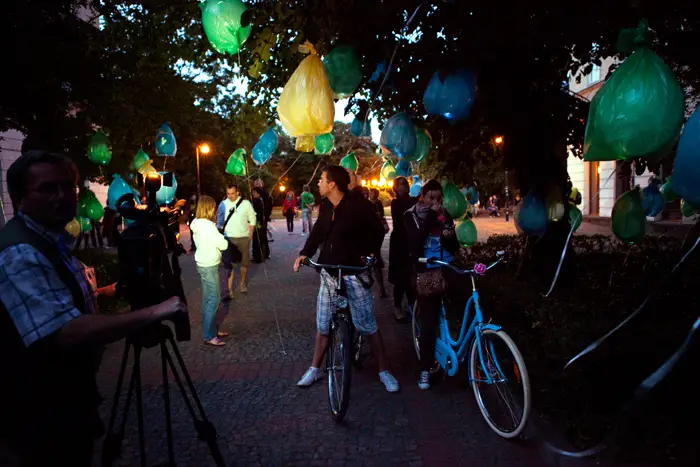Blessed or cursed shall you be in a city. Although cities are exciting places where facilities and workplaces are usually available, living in a big city can have major disadvantages such as pollution, noise, and lack of safety. In Egypt, countless studies have outlined local issues and visions for our urban future. Such studies, which cost the state millions of pounds, are gathering dust in the drawers of governmental institutions. A closer look shows that it is a blessing that the schemes and projects of the proposed visions did not see the light of the day.

A major example of that is the Giza 2030 strategic plan that the Egyptian government proposed in 2008 as a vision for the city’s future. In a 185-slide PowerPoint presentation, the General Organization for Physical Planning (GOPP) showed some extremely ambitious projects. According to the GOPP, the vision for Giza is to become the most unique city in the world, transformed to beautifully combine heritage and modernity within a time span of twenty years, and with no care about cost implications. The proposed scheme, in my view, is a good model for a camouflaged corruption.
In this vision for Giza, the future expansion of the city (2730 hectares) will be on an adjacent agricultural land, while islands on the river Nile (861 hectares) would be developed by private investors into private parks and residential zones. Moreover, there will be mega-projects such as Sphinx Village, Khufu plaza, new hotels, open museums, new green housing in addition to a forest of 294 hectares. There will also be rapid transit systems as well as a freeway of 75 meters (246 feet) width cutting through the heart of the city. That is not the whole story. There are also specialised hospitals, schools and other urban facilities planned. All poor areas are to be removed and the city in general would be a paradise on earth. But what about social resistance?

Importantly, the government doesn’t have the capacity to compensate evicted families. Moreover, the gentrification of unplanned settlements will contribute to the emergence of new informal housing. Expressed differently, Giza would be turned into a city of ghosts, like many new cities in Egypt, due to lack of affordable housing. Additionally, the proposed strategic plan does not follow a scientific approach. Even I can’t call the regeneration process itself a top-down planning. GOPP threw away the studies of the status quo and started to employ imagination in formulating the strategy for the city’s future.

Ironically, the glamorous vision of Giza 2030 is to provide a sustainable approach with visions of social, economic, and environmental concerns. Accordingly, the government will transform the arable land and natural protectorates into concrete buildings. Moreover, it will support car movement through running freeways through the urban core. It will also disperse the social fabric of informal areas through resettling lower-income groups in the unknown. Mega-projects will cost the country billions and billions of Pounds. This prodigality will lead the country to a civil war, a financial crisis, and eventually to bankruptcy. Can we call the vision of Giza 2030 the destructive technique? The answer is, Yes.
Communities have the right to be engaged and empowered in regeneration processes. Officials must give them a say on the future of their settlements. Generally, decentralization or localism – the devolution of power from the central authority to local areas – should come to the fore. In other words, the persistence of removing local authorities and community representatives from the urban planning process is a time bomb. Alarm bells are ringing around the country and the government have to do something before it is too late.
I have few questions for policymakers: For whom are these flowery dreams? Is this the promising future of Giza 2030? What is the status of Giza 2030 after the Egyptian Revolution in 2011? Would it be a curse or a blessing if I were from Giza? And my message to the current Egyptian regime is this: if this is the future of Egyptian cities, please leave the situation as it is.
Abdelbaseer A. Mohamed is a short-term scholar at American University in Washington DC and a PhD student at Ain Shams University, Cairo, Egypt.


